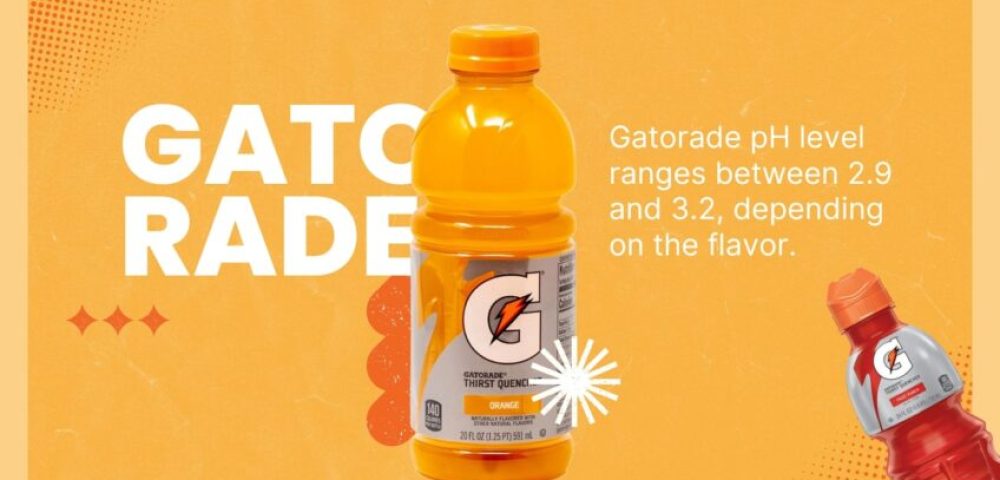Gatorade, the popular sports drink that has been synonymous with hydration and athletic performance since the 1960s, is often consumed by athletes and fitness enthusiasts alike. With its unique blend of electrolytes, carbohydrates, and appealing taste, Gatorade is hailed as a go-to beverage for those in need of a quick energy boost.
But have you ever stopped to wonder whether Gatorade is acidic, and if so, how its acidity might affect your health? In this comprehensive article, we’ll explore the chemistry behind Gatorade, its acidity levels, and the potential implications of consuming this popular sports drink.
Page Contents
pH and Acidity Explained
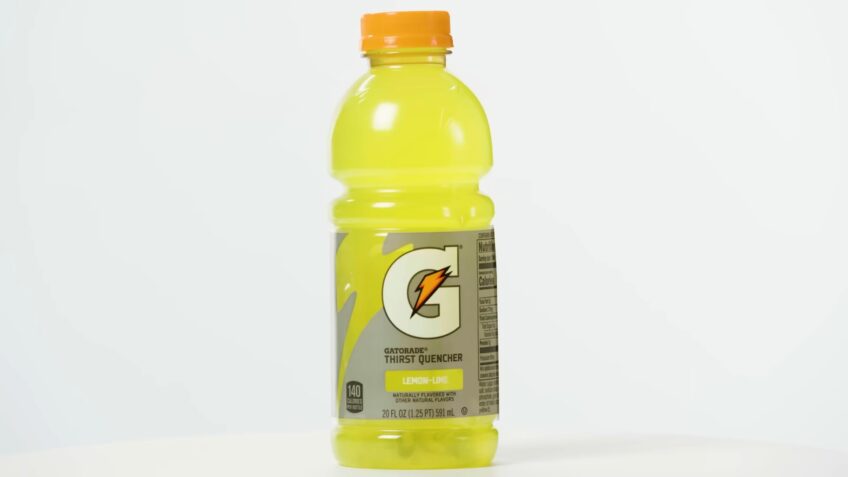
Before delving into the acidic nature of Gatorade, it’s important to understand the concept of pH and acidity. The pH scale, ranging from 0 to 14, measures the acidity or alkalinity of a solution. A pH of 7 is considered neutral, while a pH below 7 is acidic, and a pH above 7 is alkaline. The human body naturally maintains a slightly alkaline pH, usually around 7.4. Consuming foods and beverages with varying pH levels can temporarily affect the body’s pH balance.
The Chemistry of Gatorade
Gatorade’s primary components include water, sugar, sodium, potassium, and phosphates. These ingredients provide energy, electrolyte replenishment, and hydration, which are essential for athletic performance. The key to Gatorade’s efficacy is its unique formula, which was designed to replenish lost electrolytes and fluids while maintaining the osmotic balance necessary for optimal absorption.
Gatorade and pH Levels
Gatorade is indeed acidic, with a pH level that ranges between 2.9 and 3.2, depending on the flavor. This acidity is primarily due to the presence of citric acid and phosphoric acid in the drink. Citric acid, derived from citrus fruits, is a common food additive used for flavoring and preservation. Phosphoric acid is another widely used food additive that contributes to the tangy taste and extends the shelf life of the beverage.
Why is Acidity Important in Sports Drinks?
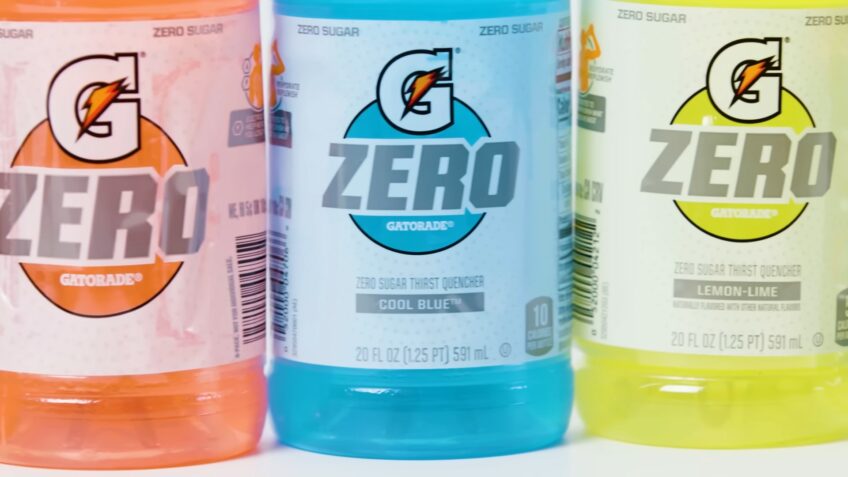
Acidity in sports drinks like Gatorade serves multiple purposes. First, it contributes to the overall flavor, making the drink more palatable and refreshing. Additionally, the acidic environment helps prevent the growth of bacteria and other microbes, ensuring the drink remains safe for consumption over extended periods.
Potential Health Implications of Consuming Acidic Beverages
While Gatorade’s acidity may play a crucial role in its taste and shelf life, it is essential to consider the potential health implications of consuming acidic beverages.
1. Dental Health
One of the primary concerns regarding the consumption of acidic beverages is their potential impact on dental health. Acidic drinks can erode tooth enamel, the protective outer layer of the teeth, leading to increased sensitivity, discoloration, and a higher risk of cavities. To minimize the risk of dental erosion, it is advisable to consume acidic drinks in moderation, use a straw to limit contact with teeth and rinse the mouth with water after consumption.
2. Acid Reflux
For those prone to acid reflux or gastroesophageal reflux disease (GERD), consuming acidic beverages like Gatorade may exacerbate symptoms. Acidic drinks can weaken the lower esophageal sphincter, allowing stomach acid to flow back into the esophagus and cause irritation. If you experience acid reflux or GERD, it is best to consult with a healthcare professional about your dietary choices and the suitability of Gatorade for your individual needs.
3. Bone Health
Some studies have suggested that consuming large quantities of acidic beverages might negatively impact bone health, as the body may use calcium from the bones to neutralize excess acidity. However, the evidence in this area is inconclusive and requires further investigation. To maintain strong bones, it is essential to consume a balanced diet rich in calcium and vitamin D, engage in regular weight-bearing exercise, and limit the intake of highly acidic beverages.
Balancing Acidity: Tips for Consuming Gatorade Responsibly
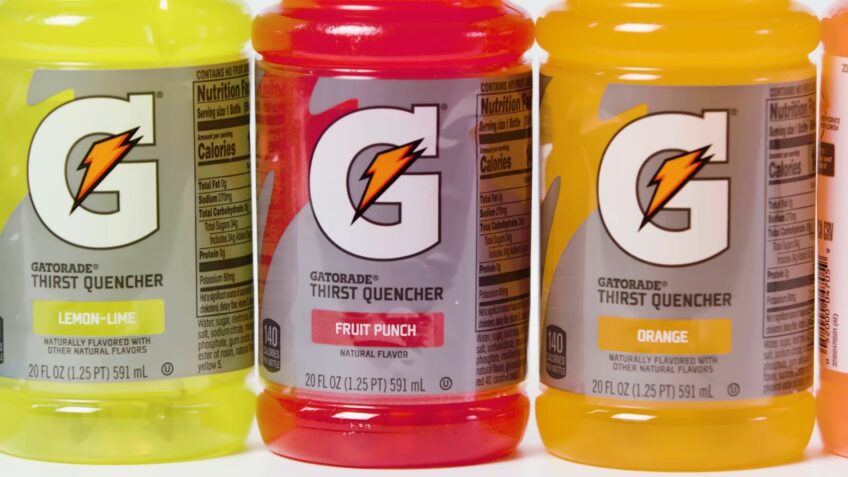
While Gatorade’s acidic nature may have some potential health implications, consuming the sports drink in moderation and taking a few precautions can help minimize any adverse effects. Here are some tips for responsible Gatorade consumption:
1. Moderation is Key
Gatorade is designed to replenish electrolytes and provide energy during intense physical activity. It is not intended as a substitute for water or as a daily beverage. Consume this beverage in moderation, primarily during or after exercise, to limit exposure to its acidity.
2. Hydrate with Water
Water should remain your primary source of hydration. Drinking water before, during, and after exercise can help maintain proper hydration and dilute the effects of any acidic beverages you consume.
3. Use a Straw
Using a straw when drinking Gatorade can minimize contact with your teeth, reducing the risk of dental erosion.
4. Rinse Your Mouth
After consuming Gatorade, rinsing your mouth with water can help wash away any residual acidity and reduce the potential for dental damage.
5. Consult a Healthcare Professional
If you have a medical condition that might be affected by consuming acidic beverages, consult with your healthcare professional to determine the most appropriate dietary choices for your specific needs.
Alternatives to Gatorade
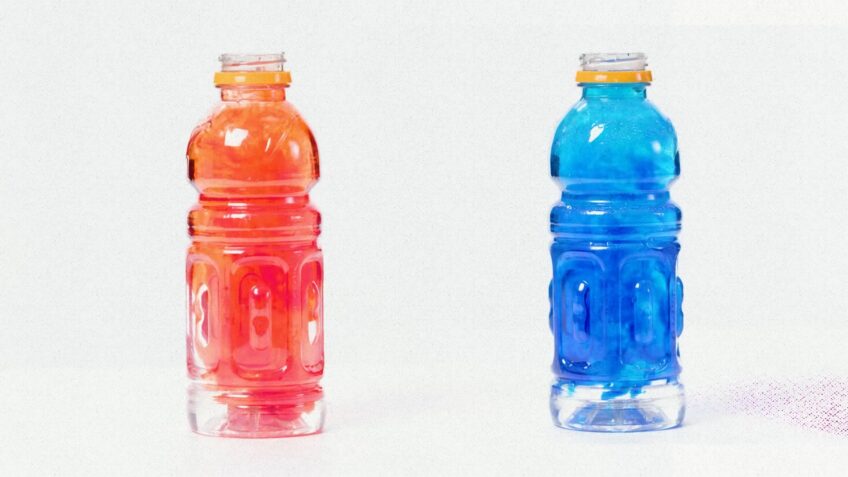
If you’re concerned about the acidity of Gatorade but still want a sports drink to support your athletic performance, consider the following alternatives:
1. Coconut Water
Coconut water is a natural source of electrolytes and has a lower acidity level than Gatorade. It can be a suitable option for those looking for a more alkaline sports drink.
2. DIY Sports Drinks
Creating your own sports drink at home allows you to control the ingredients and acidity. A simple recipe might include water, a pinch of salt, a squeeze of lemon or lime juice, and a natural sweetener like honey or agave nectar.
3. Electrolyte Tablets or Powders
Electrolyte tablets or powders can be mixed with water to create a customizable sports drink. These products often contain lower levels of acidity and can be a suitable alternative for those seeking a less acidic option.
From exploring the effectiveness of weight loss supplements like Goli to diving into the question of whether they truly deliver results, one can gain valuable insights from our article.
Final Words
Gatorade, with its blend of electrolytes and carbohydrates, has become a staple for athletes and fitness enthusiasts seeking quick hydration and energy replenishment. While this drink is indeed acidic, with a pH level ranging between 2.9 and 3.2, understanding the role of acidity in the beverage and taking precautions can help minimize any potential health risks.
Consume it in moderation, maintain proper hydration with water, and consult with a healthcare professional if you have concerns about how acidic beverages might affect your health. By following these guidelines, you can enjoy Gatorade’s benefits while staying mindful of its acidity.
Astrona Knight is the Editor-in-Chief at Fischer Institute, where she shares her extensive knowledge on health and wellness topics. Her insightful articles cover everything from diet and nutrition to mental health, providing readers with practical tips and the latest research findings.
Also Read:
- Medicare and Dental Coverage: What You Should Know in 2024
- Can You Get a Pedicure if You Have Toenail Fungus?…
- Fischer Physical Therapy - Premier Physical Therapy…
- Can You Freeze Cooked Collard Greens - Yes, Here's How!
- Can You Freeze Liver - Long-Term Storage and Convenience
- Can You Refreeze Spaghetti Sauce - Freeze, Thaw, Repeat

